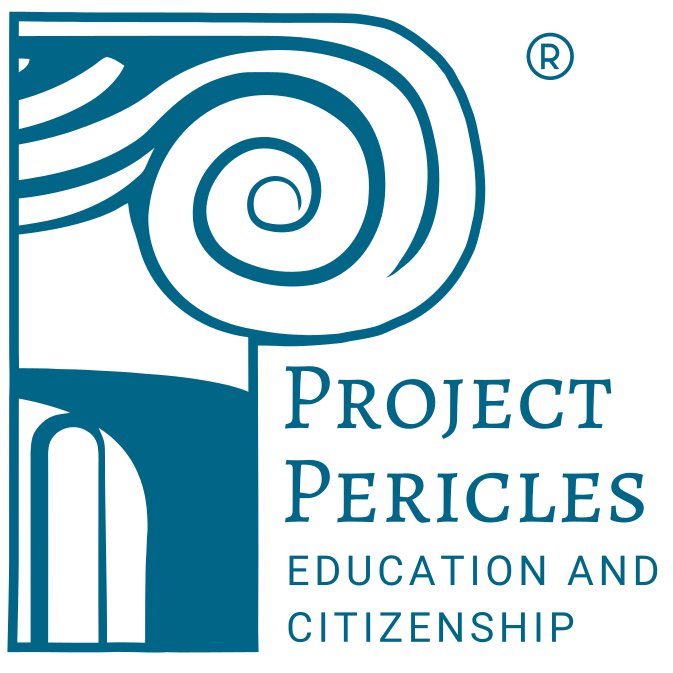|
The Mellon Foundation awarded $900,000 to Project Pericles for a new initiative supporting faculty to integrate voter education and social justice issues into humanities curricula through deliberative dialogues and community-initiated projects. The three-year initiative, “Curricula for Social Change: Empowering College Faculty, Students, and Communities for Voter Engagement,” will support more than 200 faculty and expand our reach beyond our 29 Periclean member colleges and universities.
Four faculty members representing four Periclean institutions were selected to develop, teach, and evaluate a new humanities course incorporating a community-initiated project as part of the Mellon Foundation Periclean Faculty Leadership (PFL) Program™ in the Humanities. This exciting program connects the humanities and liberal arts learning to challenges facing the wider campus community and society more broadly.
Project Pericles is delighted to announce that four faculty members representing four Periclean institutions were selected as part of The Arthur Vining Davis Foundations (AVDF) Periclean Faculty Leadership (PFL) Program in STEM and Social Sciences. In collaboration with a community partner, they will teach a new, innovative course that incorporates a project that addresses a problem identified by the community.
On April 1, 60 participants from 10 Periclean campuses nationwide participated in the Project Pericles Debating for Democracy (D4D) on the Road Workshop, “Creative Action Planning for the Win!” The workshop was a tremendous success. Students learned strategic tools and processes to help them build winning strategies to make change on issues and problems they care about in their own lives. The workshop also involved students from local NYC high schools through the organization, YVote. Project Pericles thanks The Eugene M. Lang Foundation for supporting 2022 D4D on the Road Workshops.
Project Pericles and Up to Us are concluding a successful 2021-2022 Up to Us Voting Modules Fellowship Program supporting 36 deliberative dialogue discussions across 34 campuses reaching more than 2,300 students. The program supported faculty with a mini-grant to incorporate a deliberative dialogue discussion into a course. The discussion empowers students to explore policy solutions to pressing civic issues (affordable healthcare, climate change, racial and income inequity, student debt) while respectfully engaging in civil dialogue with others who have differing viewpoints--a much needed skill in this polarized environment. Faculty used the Project Pericles Voting Modules to support this work. We are delighted that in addition to our Periclean campuses, the Fellowship Awards supported dialogues in our other partner networks including community colleges, large public universities, small private liberal arts colleges, and minority serving institutions, among others. Faculty fellows represent a diverse range of disciplines including: Africana Studies, Data Analytics, Education, Gerontology, Journalism, Political Science, Sociology, and Theatre.
On January 20, 2022, Project Pericles presented our work at The American Association of Colleges & Universities (AAC&U) Annual Meeting held in Washington, D.C. Our session, "Connecting Classrooms to Communities: Empowering Students to Address Grand Challenges" highlighted the work of our Periclean Faculty Leaders (PFLs). PFLs develop and teach innovative courses incorporating a community-initiated project.
The session featured two PFLs in the Humanities (funded by The Andrew W. Mellon Foundation) and two PFLs in STEM and Social Sciences (funded by The Arthur Vining Davis Foundations). The PFL Program is also supported by The Eugene M. Lang Foundation. The health of our democratic institutions depends on graduating students who will be civically engaged leaders. Project Pericles’ mission of developing engaged citizens continues to be critical. Our programs empower college students by giving them the tools they need to solve society’s grand challenges: Climate Change, Education Access, Immigration, Mass Incarceration, Public Health, Race and Inequality, and Voter Engagement.
"Up to Us Voting Modules Fellows" Empowering Students to Be Fiscal Thinkers and Civic Leaders10/4/2021
Project Pericles, in collaboration with Up to Us, is excited to share that a diverse cohort of 26 faculty have received a 2020-2021 Up to Us Voting Modules Fellowship Award. This fellowship supports faculty with a $500 award as they empower students to 1) explore solutions to pressing issues (affordable healthcare, climate change, racial equity, student debt) to help ensure their futures are economically and socially secure and 2) gain skills to become life-long fiscal thinkers and civic leaders.
To help youth voters participate in their democracy with confidence, Project Pericles joins hundreds of partners to celebrate National Voter Education Week (“NVEW”), a digital campaign to equip communities with all of the information they need to be informed, confident, and prepared voters.
Project Pericles today joined forces with dozens of higher education and student success organizations to announce a “Shared Commitment” to make “Democracy Learning a Top Priority for Postsecondary Education.”
|
Archives
June 2024
Categories
All
|
[email protected]
Privacy Policy | Terms & Conditions

